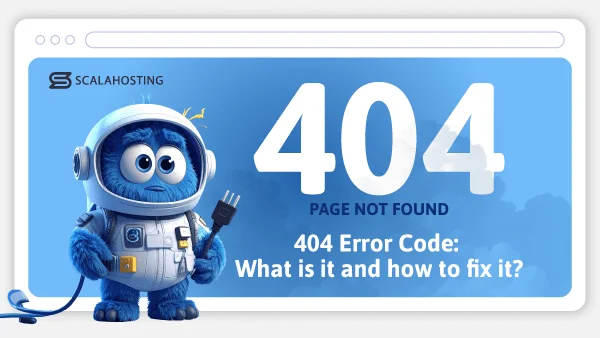Why Google Likes HTTPS Websites?
Along with speed, security is one of the most pressing issues for webmasters worldwide. There are just so many things to consider and dangers are lurking round the corner – DDoS attacks, phishing scams, viruses, malware threats.
It’s time to protect yourself and today we will learn one of the ways – ensuring HTTPS encryption.
 HTTPS stands for Hypertext Transfer Protocol Secure and represents one of the primary protocols responsible for transferring data between server and user browser. It doesn’t matter if you’re shopping online or registering for a newsletter – important personal details are being transmitted. While the information travels back and forth. It’s left vulnerable for unauthorised access. Not when you apply HTTPS though? HTTPS utilizes an encryption protocol to ensure proper data protection. That is done with the help of two separate keys that work asymmetrically when communicating between user and server.
HTTPS stands for Hypertext Transfer Protocol Secure and represents one of the primary protocols responsible for transferring data between server and user browser. It doesn’t matter if you’re shopping online or registering for a newsletter – important personal details are being transmitted. While the information travels back and forth. It’s left vulnerable for unauthorised access. Not when you apply HTTPS though? HTTPS utilizes an encryption protocol to ensure proper data protection. That is done with the help of two separate keys that work asymmetrically when communicating between user and server.
 The answer to all your HTTPS needs is called an SSL certificate. SSL stands for Secure Socket Layer and represents the shielded wall between your server and the user browser on the other side. Even if a hacker gains access to that sensitive information, they will only get a scrambled piece of code without the keys to unlock it. There are many types of SSL certificates, but the most essential include:
The answer to all your HTTPS needs is called an SSL certificate. SSL stands for Secure Socket Layer and represents the shielded wall between your server and the user browser on the other side. Even if a hacker gains access to that sensitive information, they will only get a scrambled piece of code without the keys to unlock it. There are many types of SSL certificates, but the most essential include:
What is HTTPS?
 HTTPS stands for Hypertext Transfer Protocol Secure and represents one of the primary protocols responsible for transferring data between server and user browser. It doesn’t matter if you’re shopping online or registering for a newsletter – important personal details are being transmitted. While the information travels back and forth. It’s left vulnerable for unauthorised access. Not when you apply HTTPS though? HTTPS utilizes an encryption protocol to ensure proper data protection. That is done with the help of two separate keys that work asymmetrically when communicating between user and server.
HTTPS stands for Hypertext Transfer Protocol Secure and represents one of the primary protocols responsible for transferring data between server and user browser. It doesn’t matter if you’re shopping online or registering for a newsletter – important personal details are being transmitted. While the information travels back and forth. It’s left vulnerable for unauthorised access. Not when you apply HTTPS though? HTTPS utilizes an encryption protocol to ensure proper data protection. That is done with the help of two separate keys that work asymmetrically when communicating between user and server.
- Public key – available to anyone that interacts with the system. Encrypts user data.
- Private key – available to the site owner only. Decrypts the data encrypted by the public key.
Why is HTTPS important?
Starting with the security aspect, proper HTTPS connection brings us plenty of benefits. We ensure higher security for visitor’s data, which in turn makes the users more comfortable trusting our business. But that’s not even half of it – turns out search engines like HTTPS websites just as much. A few years ago, Google hinted to webmasters that it might be useful to secure their sites with HTTPS. It was more of a recommendation than an actual rule, but clear enough to indicate a change is coming. These days, those guidelines seem more important than ever. HTTPS connection is definitely one of Google’s ranking signals, so in terms of SEO – it’s slowly becoming a must-have feat.How to secure your website with HTTPS?
 The answer to all your HTTPS needs is called an SSL certificate. SSL stands for Secure Socket Layer and represents the shielded wall between your server and the user browser on the other side. Even if a hacker gains access to that sensitive information, they will only get a scrambled piece of code without the keys to unlock it. There are many types of SSL certificates, but the most essential include:
The answer to all your HTTPS needs is called an SSL certificate. SSL stands for Secure Socket Layer and represents the shielded wall between your server and the user browser on the other side. Even if a hacker gains access to that sensitive information, they will only get a scrambled piece of code without the keys to unlock it. There are many types of SSL certificates, but the most essential include:
- Free SSL – a no-cost, automated encryption certificate. It validates data on a domain level, which is still enough if your website doesn’t collect any important client data.
- Private SSL – a more advanced solution that ensures higher level of validation. Displays a padlock to site visitors, confirming the page they landed is secure enough.
- Wildcard SSL – private SSLs provide protection for your domain, but sometimes webmasters need to protect the subdomains associated with that name as well. That’s when you get a wildcard SSL.
- Extended Validation SSL – the highest form of SSL certification. Issued only to established businesses after numerous legal checks. Typically recognizable by the green bar and padlock in the URL address field.


